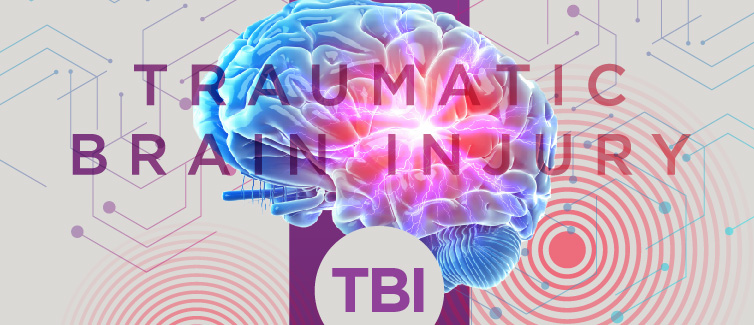There are multiple factors that can determine how a traumatic brain injury (TBI) will impact a person. Depending on where the blow strikes the head, or if a person suffers a closed brain injury, or an object penetrates the skull, there may be serious complications that impact daily life or minor symptoms that diminish or disappear completely over time. Also, depending on the extent of the initial injury, it’s often difficult to predict what the trajectory of a person’s recovery will be.
Though misunderstood and often unrecognized, TBI is not uncommon. According to the CDC (Centers for Disease Control and Prevention), 1.5 million people in the U.S. suffer TBI annually. In addition, 50,000 people die from a TBI each year, and 85,000 people suffer long-term disabilities as a result of TBI. Currently, there are more than 5.3 million people in the U.S. living with disabilities caused by TBI.
Never Miss a Beat!
Subscribe to Our HealthBeat Newsletter!
Thank you for subscribing!
You can now select the specific newsletters you'd like to receive.
You are already subscribed.
Subscribe to more newsletters in our email preference center.
Sorry, an error occurred. Please try again later.
Get Healthy Tips Sent to Your Phone!
How Does Traumatic Brain Injury Happen?
TBI can happen virtually anytime, anywhere. Any number of accidents or sports injuries can result in TBI. Some examples of how TBI can occur include:
- Being struck by an object in the head
- Striking an object with your head (dashboard or the ground in a fall)
- Being in the vicinity of a blast or explosion (more common in military personnel)
How Severe Is a Traumatic Brain Injury?
Most people are unaware of how severe and commonplace TBI can be. For example, a soccer player can sustain a TBI from a hard blow to the head and, even though he or she may remain conscious, there may be lingering effects, such as headaches, difficulty focusing, memory issues, mood swings, and frustration. Even with a “mild” TBI, the symptoms may be devastating to the individual and his or her family.
With a more severe TBI, such as a penetrating injury caused by a bullet or other object, the effects can be profound. Symptoms can range from severe impairment and loss of cognitive function to a comatose state. Survivors of severe TBI may have limited use of their arms, legs, difficulty with language or speech, loss of cognitive function, and emotional issues.
The following infographics illustrate some of the main causes of TBI, its symptoms, treatments, and potential long-term effects.
If you or someone you know has had a traumatic brain injury, they should receive immediate medical attention following the incident. Follow-up care may also be necessary depending upon the severity of TBI. To learn more about TBI and its short- and long-term effects, please visit the UPMC Center for Brain Injury website or call 1-877-AT-REHAB (28-73422).
About Neurosurgery
The UPMC Department of Neurosurgery is the largest academic neurosurgical provider in the United States. We treat conditions of the brain, skull base, spine, and nerves, including the most complex disorders. We perform more than 11,000 procedures each year, making our team one of the most experienced in the world. Whether your condition requires surgery or not, we strive to provide the most advanced, complete care possible. Our surgeons are developing new techniques and tools, including minimally invasive treatments. Find an expert near you.

